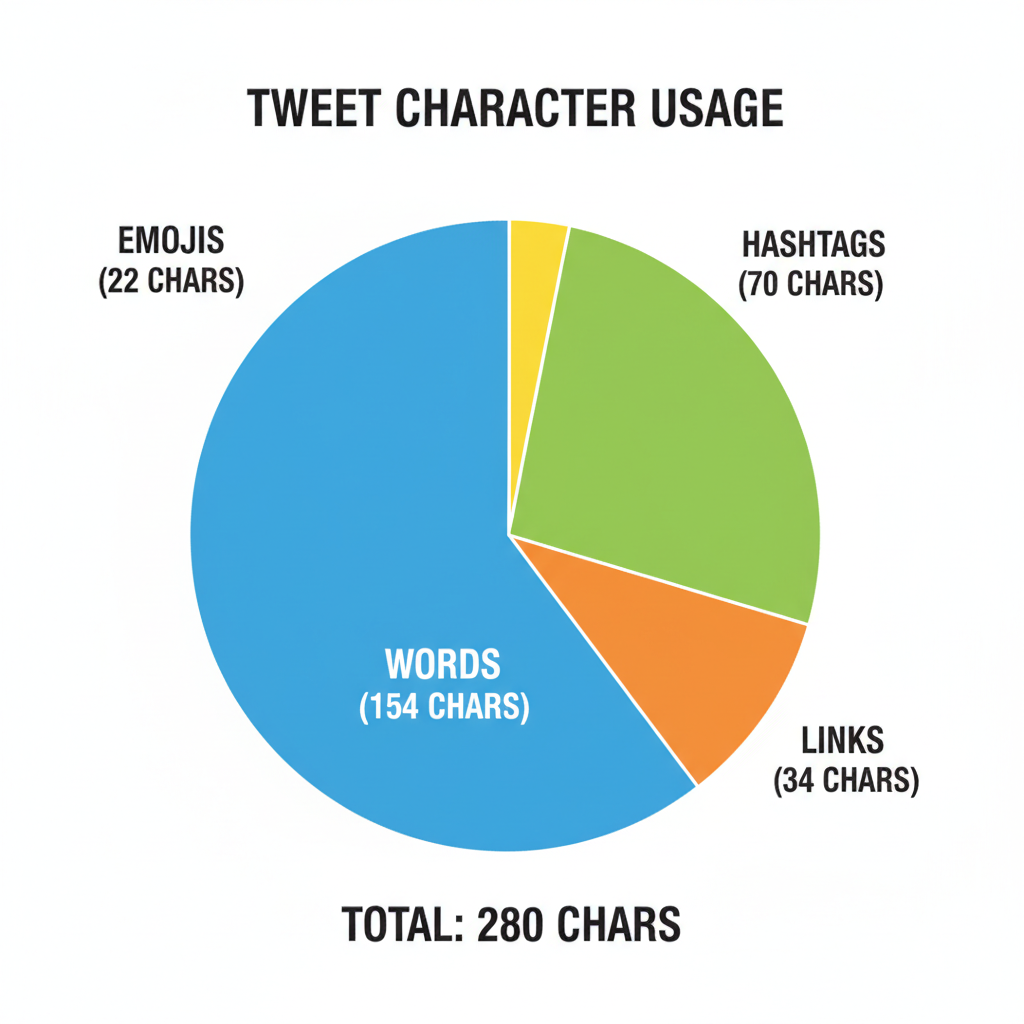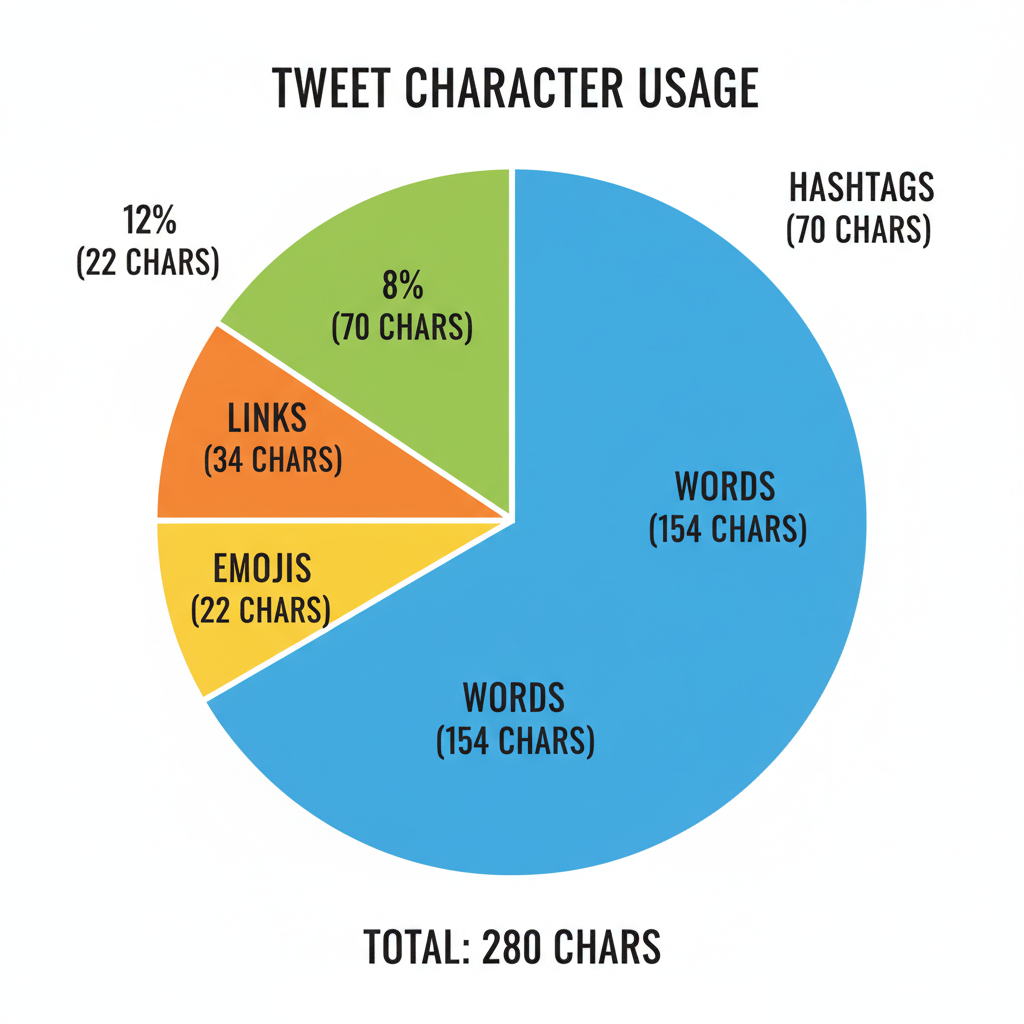How Many Words in Twitter and Character Limit Guide
Learn Twitter's character limits, word count estimates, and tips to maximize expression with hashtags, links, emojis, and concise wording.

How Many Words in Twitter: Character Limit Guide and Tips
Twitter remains one of the most influential social media platforms, thanks in part to its signature brevity. If you’ve ever asked yourself, "how many words in Twitter", the answer involves more than a simple number — it’s shaped by history, character mechanics, and smart communication strategies. From the early days of 140 characters to today’s 280-character limit, understanding how character counts translate to word counts can help you craft more effective tweets.
In this guide, you’ll learn the background of Twitter’s limits, how to calculate words per tweet, and tips to make every character count.

---
A Brief History: Twitter’s 140-Character Era
When Twitter launched in 2006, the 140-character limit wasn’t arbitrary — it followed the SMS standard of 160 characters per message. Twitter reserved 20 characters for usernames, leaving 140 for the message body.
This short format encouraged speed and concision, birthing a microblogging culture where every word mattered. Users often embraced abbreviations, shorthand, and creative phrasing to fit their ideas neatly within the limit.
---
Expansion to 280 Characters and Why It Happened
In November 2017, Twitter doubled its limit to 280 characters while maintaining its focus on brevity.
Top reasons behind this change:
- Language balance: Languages such as Japanese and Korean convey rich meaning with fewer characters compared to English. An expanded limit made expression fairer across languages.
- User experience: Data showed frustration with forced truncations, making tweets harder to compose.
- Engagement boost: More room encouraged nuanced communication without always resorting to threads.
Even after the shift, most tweets stayed below the maximum — proof that short-form content stayed dominant.
---

Converting Twitter Characters to Word Counts
To answer "how many words in Twitter" more precisely, consider average word length. In English, that’s roughly 5 characters per word, plus a space — about 6 characters total.
Formula:
Approximate word count = Character limit ÷ 6Example:
280 ÷ 6 ≈ 46 wordsSo:
| Character Limit | Average Words |
|---|---|
| 140 | ≈ 23 words |
| 280 | ≈ 46 words |
Your mileage varies based on word length, punctuation, hashtags, links, and emojis.
---
Words in Tweets vs. Threads
A single tweet today allows around 46 average-length words, but threads can piece together longer narratives.
- Single Tweet: Best for quick updates, sharp takes, and concise statements.
- Thread: Designed for storytelling, instructional content, and deep dives. Each tweet is self-contained but contributes to a broader message.
---
How Hashtags, Links, and Emojis Affect Character Count
Non-text elements influence your available word space. Understanding their impact improves message planning:
- Hashtags: Count all characters, including the `#`.
- Links: Automatically shortened to 23 characters, but still use space.
- Emojis: Usually consume 2 characters due to encoding; some may take more.
Example:
"Check out my new blog! https://example.com #blogging"- Text: 21 characters
- URL: 23 characters (shortened)
- Hashtag: 9 characters
Total usage: 53 characters — leaving fewer for other words.
---

Tips to Maximize Expression within the Limit
Use Clear, Potent Words
Choose terms with precision. Replace vague descriptions with stronger adjectives or verbs.
Cut Fillers
Remove extra words like "that," "just," or "really" unless they’re needed.
Abbreviate Smartly
Use common abbreviations and symbols (`&` for "and") where appropriate.
Limit Hashtags
Stick to one or two relevant tags.
Leverage Visuals
Images, GIFs, and videos convey meaning without consuming characters from your word budget.
---
Best Practices for Twitter Threads
Threads enhance storytelling beyond a single tweet’s confines.
Tips:
- Plan your sequence: Draft the whole thread before posting.
- Hook first: Make your opening tweet compelling.
- Number entries: Helps readers keep track (`1/4`, `2/4`, etc.).
- Individual clarity: Ensure each tweet delivers a standalone point.
---
Examples of Concise, High-Impact Tweets
Example 1:
> "Small steps every day lead to big changes. Start now. #motivation"
Example 2:
> "Coding is like cooking. Follow the recipe, then make it yours."
Both leverage strong wording and minimal filler, reflecting Twitter’s brevity ethos.
---
Possible Future Character Limit Changes
Twitter has tested long-form features like Notes (renamed Articles in trials), hinting at possible variations in limits.
Potential developments:
- Tiered limits for verified or paid accounts.
- Tweets with expandable text sections.
- Richer multimedia posts reducing text dependency.
Still, brevity defines Twitter’s identity, making total removal of limits unlikely.
---
Conclusion
With an average of six characters per word, we can estimate:
- ~23 words for the original 140-character limit
- ~46 words for the current 280-character limit
The true skill lies in making those words matter. By understanding how character counts work, being mindful of links, hashtags, and emojis, and using threads when needed, you can produce tweets that resonate and engage more effectively.
---
Ready to master Twitter brevity? Try drafting your message without constraints, then edit to fit within 280 characters. You’ll sharpen your expression and make every single word count.




